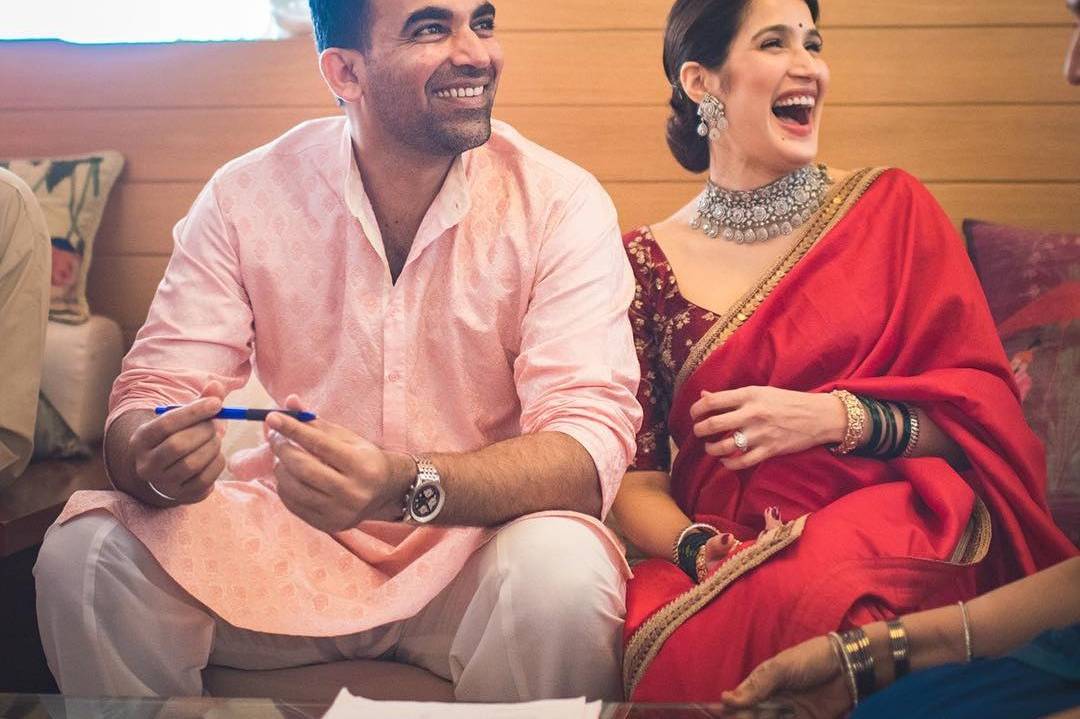Life is a fragile thread, woven with moments of joy and sorrow, strength and vulnerability. We often hear the phrase, “Life is unpredictable,” but only when tragedy strikes does the true weight of those words sink deep into our hearts. The recent calamity—the crash of Air India’s Boeing 787 Dreamliner—serves as a stark, painful reminder of how swiftly the fabric of our existence can unravel. A plane carrying a doctor couple, their three children, and a woman whose heart fluttered with excitement upon seeing the ex-CM of Gujarat, Shri Vijay Rupani, suddenly torn from their loved ones. In an instant, lives changed forever—families shattered, dreams dashed, futures extinguished.
Amidst the grief and chaos, there is the chutzpah that life must go on; no matter how much wealth we amass, or how many plans we make, life’s finality is inevitable. When the curtain falls, what remains? Material possessions? Memories? Or the silent, unseen documents that hold the keys to a person’s legacy?
For those left behind, the journey of grief is arduous enough. Sorting through memories, mourning the loss, trying to find meaning in the chaos. But there’s another, often overlooked layer—an unspoken burden: the paperwork, the legalities, the inheritance. These are the silent guardians of our loved one’s dignity, the bridge that guides them through the storm of loss. And yet, many neglect this vital aspect of life’s planning, assuming tomorrow will always come, and that time will be generous.
Estate planning is not merely a legal necessity; it is an act of love, a gift of clarity amid uncertainty. It’s about carving a pathway that eases the journey for those we leave behind, so they do not drown in a sea of legal hurdles and confusion. It’s about ensuring that our wishes are honored, and that the memories of our bonds are protected from the cold grip of bureaucracy.
Perhaps the most crucial document in this voyage of preparation is the Legal Heir Certificate. It’s the key that unlocks the doors to closure—claiming insurance, transferring assets, and settling debts. It establishes the unbreakable relationship between the departed and their kin, a testament to the bonds that define us. Without it, families are left stranded in legal limbo, fighting battles not of their choosing, delaying the process of closure. This certificate, issued by local government bodies like the MRO office or courts, is the first step toward reclaiming what is rightfully theirs.
Then comes the Family Certificate—a document that affirms the fabric of kinship, the structure of the family. It is a shield against confusion, proof that the members are recognized in the eyes of law and government. Keep this document current; keep it accessible. For in times of grief, clarity is a balm, simplicity a refuge.
Yet, perhaps the most vital act of estate planning is the creation of a Will. A document that whispers your wishes into eternity, guiding your loved ones when you are no longer there. A will is more than ink on paper; it is an affirmation of love, a declaration of how you wish your treasures to be shared, and your legacy to be carried forward. Registering and notarizing this document during your lifetime lends it weight, ensuring that your voice echoes loud and clear through the corridors of legal proceedings. It can spare your family the pain of disputes, the delay of probate, the cloud of uncertainty.
But a will alone is not enough. It must be complemented by up-to-date nominations on investments—fixed deposits, insurance policies, mutual funds, and post office savings. These are the assets that form the pillars of one’s financial foundation. Nominate a beneficiary to ensure that these assets glide smoothly to the intended recipients, like a gentle stream flowing to its destination. Regularly update these nominations, especially after life’s milestones—marriage, childbirth, and the passing of a loved one. Neglect can turn a gift into a complication, a source of conflict instead of comfort.
Clarity and preparedness shape the organizing structure of insurance files. When the inevitable dark clouds gather, having the right documents—death certificates, medical and police reports—can make the difference between swift closure and agonizing delay. A well-organized file of these papers can transform a grieving process into a more manageable journey, a path paved with certainty rather than confusion.
Investments, especially mutual funds, often come with a simple option: designate a beneficiary. Yet, many overlook this step, believing that a single nominee suffices. But remember— a nominee acts as a custodian, not the ultimate owner. The true heirs are those named in the will, those who carry the legacy forward. To prevent disputes and delays, be deliberate—draft a will, update nominations, and communicate your wishes clearly. When you do, you craft not just a financial plan, but a legacy of love and clarity.
And amid this web of legalities, do not forget the importance of capturing the joyous memories—the laughter, the hugs, the fleeting moments of happiness. Photos and videos of family gatherings, celebrations, and simple everyday joys—they are treasures beyond measure. They remind us of the warmth that binds us, providing solace in times of sorrow. Hug your loved ones a little tighter, and speak your love openly, for these are the true riches of life. As Sonu Nigam sings, “Har pal yahan, jee bhar jiyo, jo hai sama, kal ho na ho”—live each moment fully, for tomorrow is never promised.
The recent tragedy is a somber reminder of life’s fragility. It underscores the importance of not just living well, but also planning wisely. Organizing your affairs—creating a will, securing legal heir certificates, updating nominations, and capturing memories—are acts of foresight that honor your loved ones and ease their pain.
When the storm of loss comes, we cannot control the winds. But we can anchor ourselves with the knowledge that we have done what we can to prepare for the inevitable. To leave behind not just wealth, but clarity, love, and a legacy of thoughtful planning.
So, take a moment today. Review your documents. Talk to your loved ones about your wishes. Set your affairs in order, not out of fear, but out of love—love that endures beyond life itself. In the end, it’s not just about possessions or papers; it’s about the peace of mind that comes from knowing you’ve done your part to care for those you cherish most.





